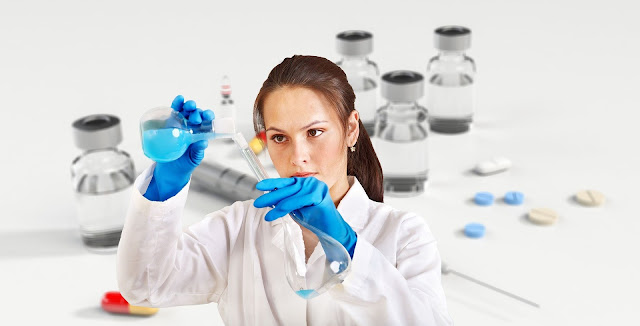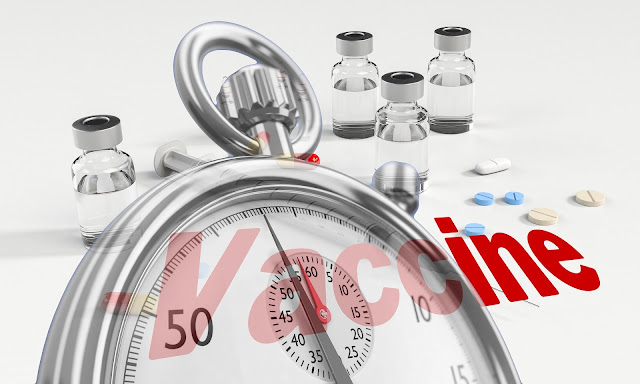vaccine
A vaccine is a biological preparation that provides active acquired immunity to a particular infectious disease. A vaccine typically contains an agent that resembles a disease-causing microorganism and is often made from weakened or killed forms of the microbe, its toxins, or one of its surface proteins.
What is vaccination?
Vaccination is the method in which a bacterium or virus is intentionally administered into a person's body, allowing it to prepare its immune system to fight future infections.It has the ability to protect your body from specific diseases by increasing your immunity. A vaccine is produced with a very small amount of virus or bacteria that can cause a specific disease.
These partial and weak organisms stimulate your body's immune system to develop antibodies, and serve the very purpose of defending your system against those diseases.
What are vaccine preventive diseases?
Vaccination is one of the most important things recommended by doctors, especially for children. Timely vaccination can protect you from diseases such as:- chickenpox
- Measles
- Mumps
- Influenza
- Rabies
- Polio
- Hooping cough
- Tetanus
- hepatitis A
- hepatitis B
What is the purpose of vaccination?
Vaccines are highly essential to eliminate, control or eradicate many infectious and serious diseases. It is true that children and the elderly are at greater risk of disease, but adults can also be affected by any type of disease at any time of their lives. You should get your immunization done even if you are an adult if you were not vaccinated during your childhood.Just as it is important to eat healthy, exercise and go for regular check-ups, immunization is equally important and plays an important role in maintaining your overall health. It can be considered one of the safest and convenient preventive care operations.
What is the importance of vaccination?
- Vaccination keeps you and your family healthy: If a person is vaccinated throughout life, he or she is protected from that disease for the whole life. Vaccines related to the disease should not be discarded.
- Vaccines are safe: The vaccine is said to be the safest of all drug products.
- Vaccines make the difference between life and death: if a disease is prevented by vaccination, it is dangerous and vaccination is important to prevent it.
- Vaccines prevent the disease for which it is given: If vaccinated, people cannot catch a disease and cannot catch the disease with the vaccine.
- Vaccines Keep You Healthy: The vaccine protects against many diseases throughout your life and skipping them leads to many diseases such as influenza, herpes, HPB, hepatitis B.
How are vaccines made?
Vaccines are made by taking viruses or bacteria and weakening them so that they can reproduce (or replicate) themselves very well or so that they are replicate at all. Children given vaccines are exposed to enough of the virus or bacteria to develop immunity, but not enough to make them sick. There are four ways that viruses and bacteria are weakened to make vaccines:- Change the virus blueprint (or genes) so that the virus replicates poorly. This is how the measles, mumps, rubella, and varicella vaccines are made. The virus blueprint is changed by a technique called cell culture adaptation [adapting a virus to grow in specialized cells grew in the lab instead of the cells it normally grows in]. Because viruses can still, to some extent, make copies of themselves after cell culture adaptation (and therefore are still alive), they are often referred to as live, attenuated (or weakened) viruses.
- Destroy the virus blueprint (or genes) so that the virus is replicate at all. This is how the “killed” polio vaccine (or polio shot) is made. Vaccine virus is made by treating poliovirus with the chemical formaldehyde. This treatment permanently destroys the polio genes so that the virus can no longer replicate.
- Use only a part of the virus or bacteria. This is how the Hib, hepatitis B, and (in part) pertussis vaccines are made. Because the viral or bacterial genes are not present in the vaccine, the viruses or bacteria infect replicate.
- Take the toxin that is released from the bacteria, purify it, and kill it so it prevents any harm. Some bacteria cause disease not by replicating but by manufacturing harmful proteins called toxins. For example, bacteria like diphtheria, tetanus, and pertussis (whooping cough) all-cause disease by producing toxins. To make vaccines against these bacteria, toxins are purified and killed with chemicals (such as formaldehyde). Again, because bacterial genes are not part of the vaccine, bacteria further replicate.
How does vaccination work?
Depending on what type of vaccine is being given in your body, it can be:Oral administration is done to stimulate the formation of antibodies in the lining of your intestines. This prevents the infected virus from binding to the mucous membrane of the wall or intestine.
Intranasal to combat diseases spread in the body through the mucous membrane of the nasal cavity
Intradermal injection, in which the vaccine is injected into the upper layer of the skin, ensuring that it does not cause any damage to nerves and blood vessels.
Intramuscular injections that are injected into your muscle tissue.
Subcutaneous injection that is injected into the fat layer between the skin and the muscle. This method is used when the vaccine needs to be released slowly into the body.
Who needs a vaccine?
Most vaccines are given during their childhood, but sometimes adults and the elderly may also require vaccination. You may need to be vaccinated in the following situations:
You have a weak immune system: This can be caused by some cancers that can weaken the system, HIV infection or specific drugs that have the potential to damage your immune system.
If you plan to travel to specific places where infection is common, then you should get vaccinated so that you are not infected with that particular infection.
Who is not eligible for treatment?
Vaccination is not recommended in the following situations:Children whose age is less than six months. If a person has a severe allergy to any substance used in any type of vaccine or vaccine; It may be allergic to antibiotics, gelatine or any other ingredient.
What are the benefits of vaccination?
Advantages of vaccination:
- Diseases that can be eradicated or prevented with the help of vaccination.
- It is vaccinated not only to protect but also to keep the people around it out of danger.
- Even if a person is vaccinated, there is a possibility that the person may be ill.
- Different types of vaccines are made from different types of creations and thus affect each person differently.
- If someone has a weak immune system, they should be vaccinated under the supervision of a specialist.
- If someone is allergic to the vaccine, they may regain the allergy or reaction.









1 comment:
Useful Post
Post a Comment